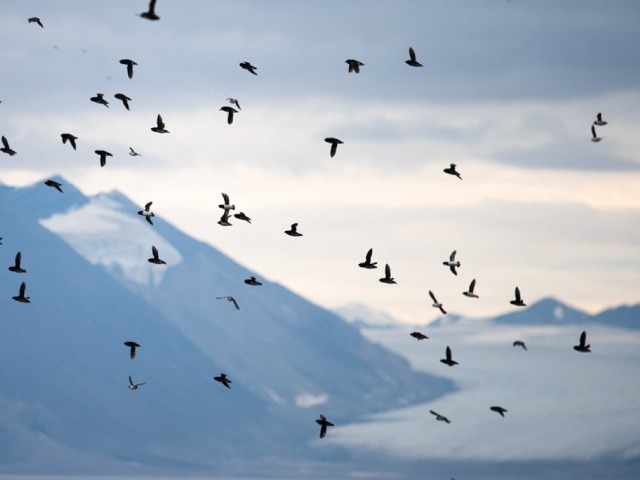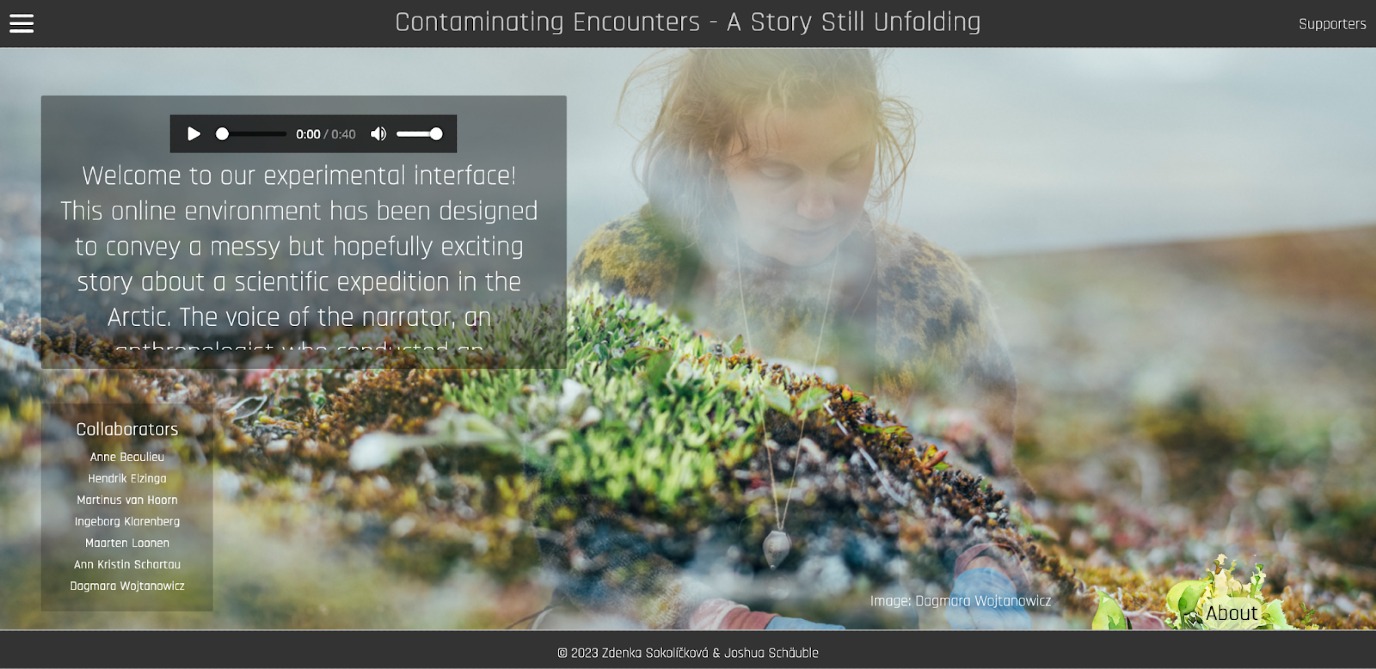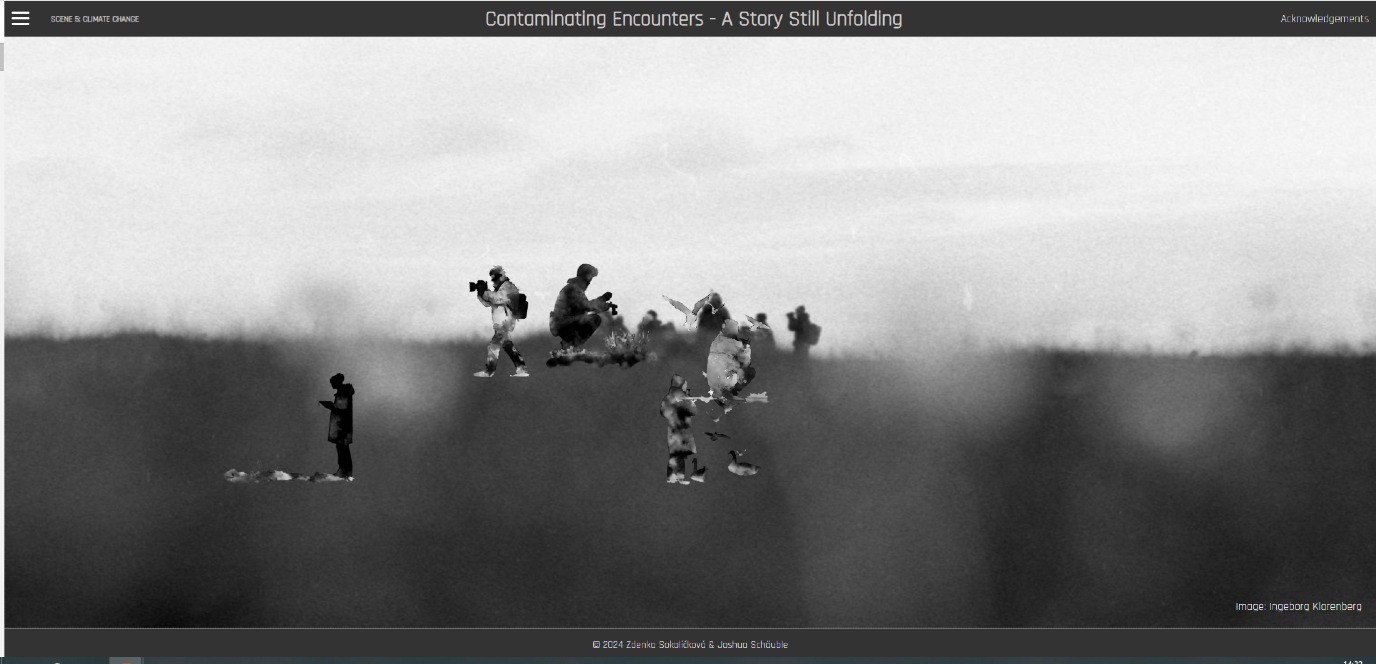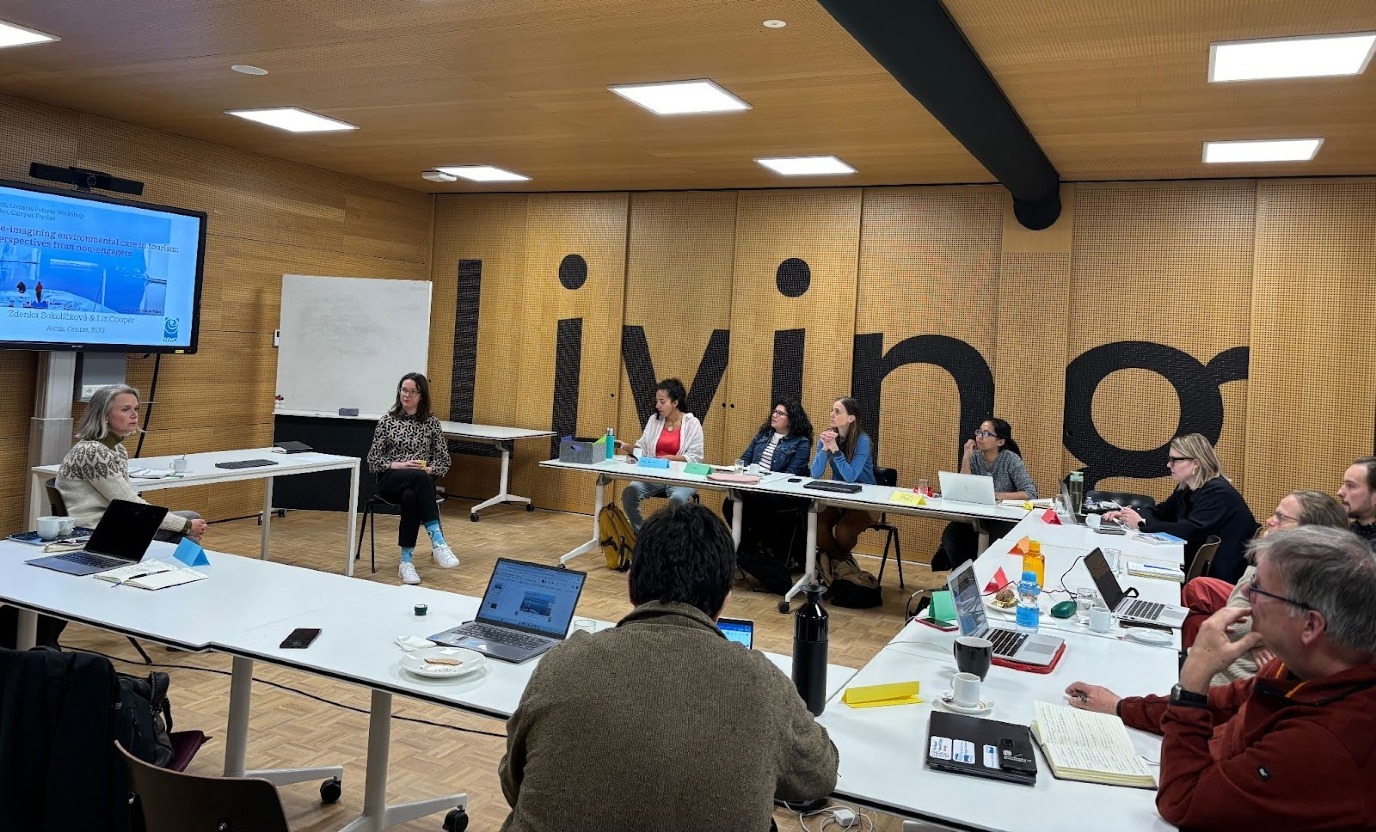Liveable Futures Workshop: Interfaces and Knowledge
| Date: | 28 April 2025 |

On 9 April 2025, scholars from across the University of Groningen came together at Campus Fryslân for the Liveable Futures Workshop: Interfaces and Knowledge. This interdisciplinary gathering focused on ethnographic methods and digital tools to explore how we generate, share, and question knowledge in the context of ecological urgency. With case studies from the Arctic and Antarctic, participants examined the role of scientific expeditions, tourism, and environmental care in shaping future narratives. The workshop featured thought-provoking presentations, collaborative discussions, and personal reflections on the evolving interface between knowledge, ethics, and lived experience.
Over a dozen scholars from different parts of the University of Groningen gathered around the topic of ethnographic research for liveable futures at Campus Fryslân on 9 April 2025. Zdenka Sokolickova, post-doc at the Arctic Center presented the interface Contaminating Encounters, based on fieldwork during the SEES expedition in Svalbard in 2022, led by Maarten Loonen, Arctic Center and Department of Knowledge Infrastructures.

The interface, conceived and developed with colleagues from the Knowledge Infrastructures Department, narrates the experience of the Dutch scientific expedition (aiming to generate knowledge relevant to times of ecological urgency) through the voice of an ethnographer and the material created during the expedition. The study is guided by the question “How does scientific knowledge relate to other ways of knowing when tackling uncertainty?” The contribution further speaks to the question of “How can digital technologies contribute to an understanding of knowing?”
This session was followed by a working lunch on ethnographic methods. In the afternoon, Zdenka Sokolickova and Liz Cooper shared their ongoing project on Moral stances and climate change in the context of tourism in Antarctica. This work takes a critical look at how we imagine environmental care in tourism (Martin et al., 2015; Papamattheakis, 2023; Cañada, 2024) questioning whether the concept of environmental care should be expanded beyond considering how we interact with natural environments, to encompass also whether we should interact with them. Thus, we contemplate whether choosing not to engage with a natural environment can be an act of environmental care.

Two participants agreed to reflect on their experiences of this workshop. Fransiska Nugrahani, a PhD at Campus Fryslânlan working on tourism, sums it up:
‘’The interdisciplinary exchange was incredibly enriching! It was an opportunity to explore new intellectual horizons."
Fransiska also found that what made the event even more remarkable is its focus on cutting-edge research in the Arctic and Antarctic—regions that are not only critical to understanding climate change and sustainability but also rich with cultural, ecological, and geopolitical significance. She explains:
"The methodologies presented are fascinating, extending far beyond tourism (which initially drew me in) to encompass fields like Indigenous studies, environmental humanities, political ecology, and more. I’m thrilled to discover what other unexpected themes will emerge during the discussions."

Ana Maria Carillo, a visiting student from Colombia was also enthusiastic about the interdisciplinary set up. She explains:
‘’This workshop was a very different experience for me because we shared space with both natural and social scientists. That interaction made me reflect on the fragile boundaries in the construction of knowledge.’’
Ana summarized her experience of the interface from the morning programme:
‘’There is something fantastic about Zdenka’s work: she created a transmedia, experimental interface with twelve scenes that allow you to explore the scientific expedition in the Arctic in multiple ways.
These encounters make you think and feel about how we can create ways of knowing that are organized in structures more closely aligned with human and non-human assemblages.’’
The interface presented at the workshop can be consulted, Contaminating Encounters, and a publication co-authored by Zdenka Sokolickova, Anne Beaulieu and Maarten Loonen is in the making.

